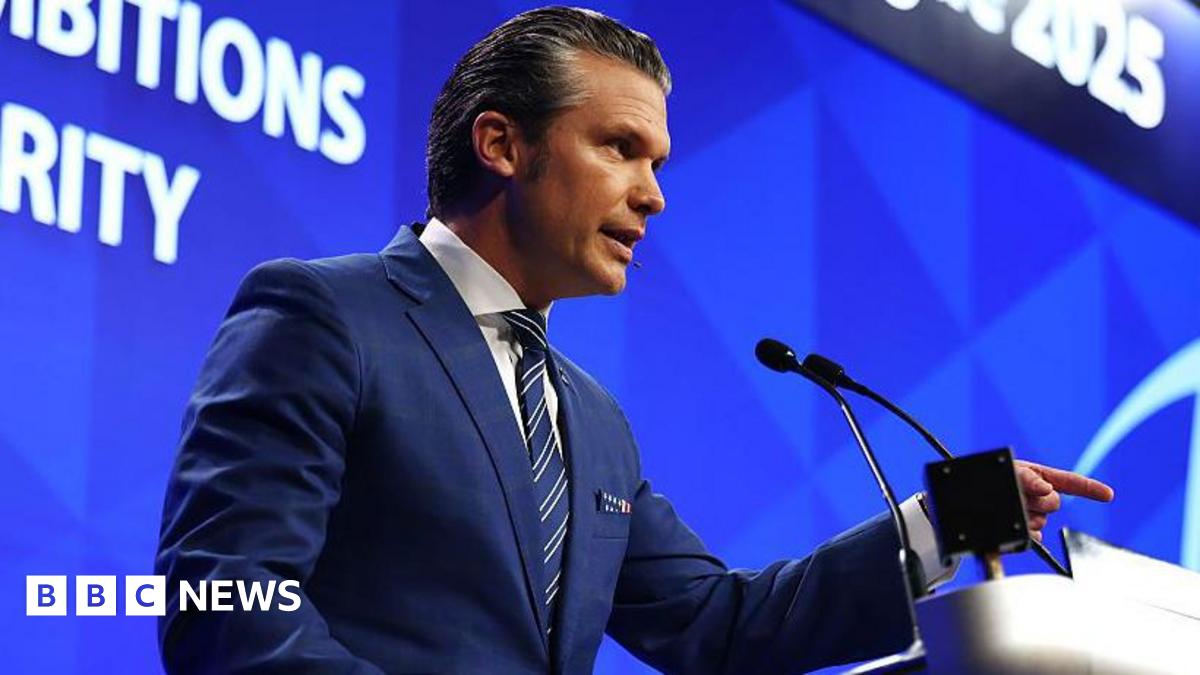Hegseth also sold Trump’s vision of “common sense” in dealing with the rest of the world, where “America does not have or seek permanent enemies”.
He compared the US President to the late Singaporean statesman Lee Kuan Yew, who was famous for his pragmatic realpolitik in foreign relations.
“The United States is not interested in the moralistic and preachy approach to foreign policy of the past. We are not here to pressure other countries to embrace and adopt policies or ideologies. We are not here to preach to you about climate change or cultural issues. We are not here to impose our will on you,” he said.
It was an approach that Democratic Party Senator Tammy Duckworth, who was part of the US delegation in Singapore, criticised.
Speaking separately to reporters at the dialogue, the member of the Senate’s foreign relations committee said Hegseth and Trump’s vision was “inconsistent with the values on which our nation was founded”.
Others “know what we stand for, we stand for basic human rights, we stand for international law and order. And that’s what we are going to continue to push for. And I know that in the Senate we’re going to try to uphold that or else it would be un-American otherwise,” she said.
Duckworth also took aim at Hegseth’s overall message to allies in the region, calling it “patronising”.
“His idea where we wrap ourselves around you – we don’t need that kind of language. We need to stand with our allies, work together, and send the message that America is not asking people to choose between the PRC (People’s Republic of China) and us.”
Other members of the delegation, Republican representatives Brian Mast and John Moolenaar, told the BBC the speech sent a clear message of China’s threat and it was welcomed by many Asian countries, according to meetings they had with officials.
“The message I’ve heard is that people want to see freedom of navigation and respect for neighbours, but feel intimidated by some of the aggressive actions that China has displayed,” said Moolenaar, who is chairman of a House committee on competition between US and China.
“So the presence of the US is welcome and encouraged. And the message was to continue to be present.”
Ian Chong, a non-resident scholar with Carnegie China, said Hegseth’s call to increase defence spending was “pretty standard for the US these days”, and while it has been a “perennial issue” between the US and Asian allies like Japan, South Korea and Taiwan that goes back decades, “the Trump administration is more insistent and demands more”.
“I guess Asian governments will listen – but how much they will comply is a different story,” said Dr Chong.
William Choong, senior fellow at the ISEAS – Yusof Ishak Institute, said with few exceptions, “the perceptions of the threat from China among Asian countries is not parallel to European perceptions of Russia”.
Many countries in Asia have “a more sanguine take of China” where “they recognise the challenge posed by China in the South China Sea but otherwise they are willing to work with China on almost everything else”, said Dr Choong.
Hegseth’s call “at best is ignorance, at worse is hubris”.
